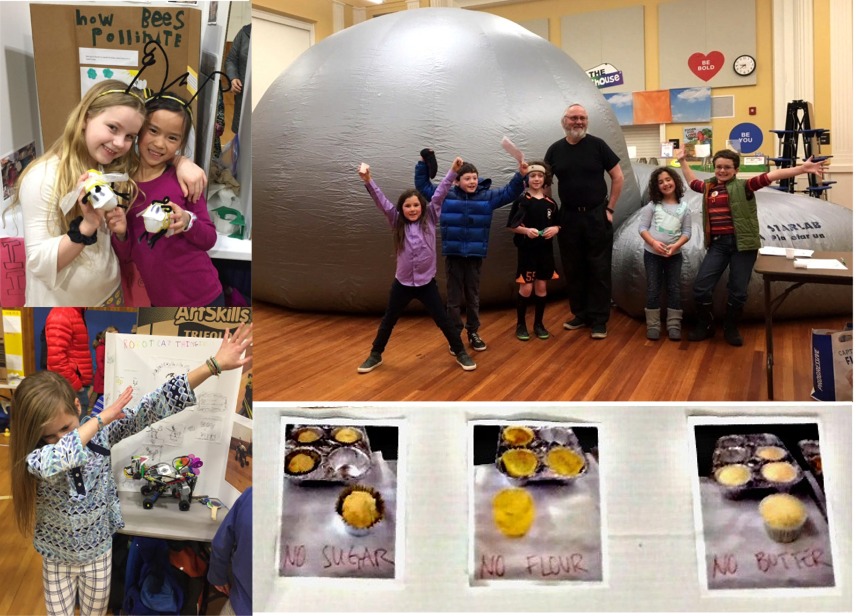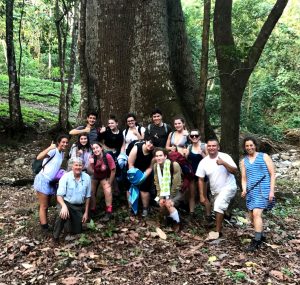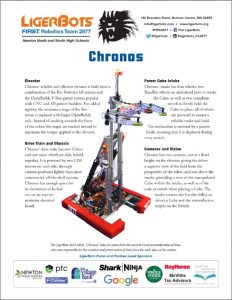Supported by Microsoft Philanthropies, Technology Education And Literacy in Schools (TEALS) recruits, trains, and places volunteer teaching assistants in high-school classrooms to support partner schools and teachers in offering computer-science courses on a sustainable basis. Several schools in the local area participate: Boston Latin, Boston Community Leadership, Boston International, Brookline, Burlington, Cambridge, Excel Academy East Boston, KIPP Academy Lynn, Revere, Waltham, Watertown, Woburn. Applications are now open for new volunteers for the 2018-19 school year. For more information, read the Volunteer Guide and the FAQ, and view a video of an introductory info session.
Monthly Archives: March 2018
NSHS Rising Sophomores: Applications Open for daVinci Program
Applications are open until March 18 for rising sophomore students at Newton South HS to be considered for daVinci, the school’s interdisciplinary STEAM program, in the 2018-19 school year. Here’s a NSHS Denebola article about the program.
More Pi Day Events for Mar. 14
Besides the Museum of Science’s Pi Party on Boston’s City Hall Plaza, Boston will celebrate March 14 (3.14) with these other events:
- Museum of Science Sunrise Yoga: Pi Day Kickoff, 6-8AM at Museum of Science (for donation in the range of $31.41 to $314.15…)
- WPI Boston Seaport Open House, 11:30AM-1:30PM or 4:30-6:30PM at WPI Seaport, 303 Congress St, Boston (free)
- Pi Day Taste Test, 3-5PM, at Brookline Public Library (s0ld out)
- Pi Day with Boston Cream Pie, 4:30-6PM at Brookline Public Library (free)
- Pi Day sPIrographs, 5:30-7PM at Fab@CIC (free)
Cabot Elementary Celebrates 18th Annual Invention Invasion!
Last Friday evening, students — as teams and individuals — displayed their inventions and results of scientific inquiry at Cabot Elementary School’s 18th annual Invention Invasion — an event sponsored by the Cabot PTO and faculty. This year, the event also featured Night Skies’ Starlab inflatable planetarium for shows every 20 minutes. 
Register for Clark University’s Spring Splash, Grades 5-12, Apr. 8
Clark University’s Spring Splash — a one-day program offering 28 classes for students in Grades 5-12 — will be held April 8, 10AM-5PM on the Clark campus (950 Main St., Worcester). Students should register by March 30 but as soon as possible because classes fill up. The day is free, with lunch included. For more information, email clarkuesp@gmail.com. The classes are taught by Clark students and include these STEM topics:
- STEM Majors 101
- Intermittent Fasting: The Ultimate Fat-Burning Lifestyle!
- It’s a Liquid… it’s a Solid… It’s Oobleck!
- All About Tigers
- Astronomy – The Stars Above
- Cool Chemistry Stuff
NNHS Ecology Trip to Nicaragua
 For the second year in a row, Newton North HS students visited Nicaragua over February vacation to study tropical ecology and sustainable living through the NNHS Global Education Program’s Nicaragua Ecology Trip. Led by North North HS biology teacher Anndy Dannenberg and Brandeis University ecologist Dr. Eric Olson, the group of 11 students spent two nights on an organic farm (where even human waste is expertly composted), visited an ecolodge (that uses photovoltaics and wind for power and captures rainwater for irrigation and clothes washing), and then spent several days in “community tourism,” boarding with four host families in a small coastal fishing village. The group sighted all three species of monkeys found in Nicaragua, including the elusive spider monkey. A key focus of the trip was studying spiders, to the dismay of some arachnophobes in the group. Other topics of study included:
For the second year in a row, Newton North HS students visited Nicaragua over February vacation to study tropical ecology and sustainable living through the NNHS Global Education Program’s Nicaragua Ecology Trip. Led by North North HS biology teacher Anndy Dannenberg and Brandeis University ecologist Dr. Eric Olson, the group of 11 students spent two nights on an organic farm (where even human waste is expertly composted), visited an ecolodge (that uses photovoltaics and wind for power and captures rainwater for irrigation and clothes washing), and then spent several days in “community tourism,” boarding with four host families in a small coastal fishing village. The group sighted all three species of monkeys found in Nicaragua, including the elusive spider monkey. A key focus of the trip was studying spiders, to the dismay of some arachnophobes in the group. Other topics of study included:
- How to recognize and survey for jumping spiders (family Salticidae)?
- How do hummingbird and “buzz” pollination syndromes work?
- What allows mangrove trees to thrive in low-oxygen salty mud?
- How can we access the forest canopy using a mix of caving and rock climbing techniques?
- How can a non-native invasive tree become an employment opportunity for underemployed fishermen?
- How many meals of rice and beans can be eaten before one longs for dietary diversity?
LigerBots to Compete in Local Events Mar. 16-18 and Apr. 6-8
 The LigerBots, Newton’s dual-high-school robotics team, has completed its six-week design-and-build season to create Chronos, the robot it will use in FIRST Power Up competitions. (See video introduction of Chronos here.) You can see Chronos and the LigerBots in action at the North Shore District Event, March 16-18 at Reading Memorial HS (62 Oakland Rd., Reading) or the Greater Boston District Event on April 6-8 at Revere HS (101 School St., Revere). Most of the action for public viewing will be on the last day of each event.
The LigerBots, Newton’s dual-high-school robotics team, has completed its six-week design-and-build season to create Chronos, the robot it will use in FIRST Power Up competitions. (See video introduction of Chronos here.) You can see Chronos and the LigerBots in action at the North Shore District Event, March 16-18 at Reading Memorial HS (62 Oakland Rd., Reading) or the Greater Boston District Event on April 6-8 at Revere HS (101 School St., Revere). Most of the action for public viewing will be on the last day of each event.
Newton Schools Foundation: Donor will Match up to $25K in Contributions to Calculus Project
The Newton Schools Foundation has announced that, for a third year in a row, an anonymous donor will match up to $25,000 in donations made in March for the Newton Public School’s Calculus Project. The Calculus Project works in all of Newton’s middle and high schools to have more Hispanic, African American, and low-income students successfully complete calculus in high school, as a path to success in college. Since its start in 2013, the program has increased enrollment by 70%, 200%, and 800% for these groups, respectively. The program provides intensive, small-group summer classes, enrichment activities, and year-round mentoring and tutoring. In 2018, the summer program includes instruction in Computer Science, field trips to STEM-related companies, and college campus visits for rising 11th graders with a focus on STEM majors and careers. The program currently include 138 students in four grades next year will expand next year to cohorts in Grades 8-12.
While the NPS operating budget funds part of the program, tax-deductible donations via the NSF are needed for the summer program, tutoring, enrichment activities, and supplies.
Family Night at FSU Planetarium: Habitat Earth, Mar. 16
The Christa McAuliffe Center at Framingham State University opens its planetarium for free public presentations on the third Friday of each month (except April). The presentation on March 16 will be Habitat Earth, full-dome film about the interconnected ecosystem of our planet and a live tour of the night sky. Registration is strongly recommended, and a few seats remain for both the 5:30 show and the 6:30 show.
‘Coding Through Music’ Summer Program for Ages 13-16
Boston Tech Mom tells us about a summer program coming to Lesley University in Cambridge (July 23-27 and August 13-17) and Newbury College in Brookline (July 2-6 except July 4): Coding Through Music, presented by Kids 4 Coding. It’s for ages 13-16 and uses EarSketch, created by Georgia Tech, to use music to teach beginners and advanced students to code in languages such as Python and JavaScript.
